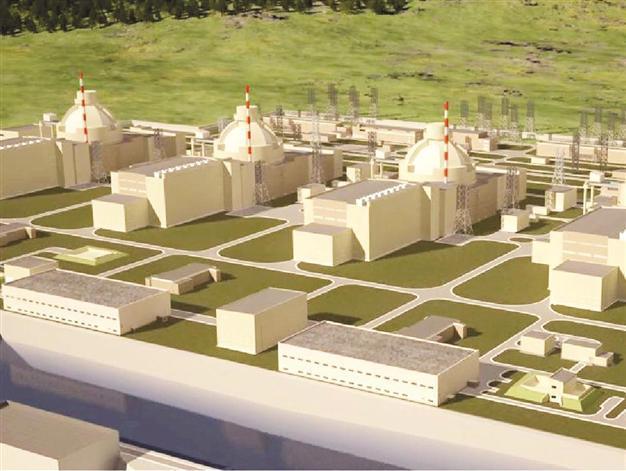Akkuyu plans revealed as Russians eye more plants
ANKARA - Anatolia News Agency

AA Photo
Rosatom’s
Akkuyu Power Plant Electric Production Company’s General Manager Alexander Superfin has said that Rosatom is interested in building Turkey’s second and third nuclear power plants.
“If the Turkish government turns to
Russia for help, we would be more than happy to be part of that process,” Superfin told the Anatolia news agency, adding that he was aware that Turkey was already in talks with other countries like Canada, Japan, and China for the construction of the other slated plants.
Details of plant emerge Meanwhile, the details of the Akkuyu plant to be built in the southern Turkish province of Mersin’s Gülnar region have been disclosed. The nuclear plant is expected to be built on the water and will be the size of two football fields. The plant will be designed to withstand an earthquake measuring nine degrees on the Richter scale. There will be four reactors, built side by side, at the plant, providing 1,200 megawatts of electricity each. The plant will use water from the Mediterranean Sea for cooling purposes and will then redirect the water back to the sea completely uncontaminated. As the plant will be cooled using sea water, there will be no cooling towers built and no radiation will be released in any form outside of the boundaries of the plant.
The plant is expected to have the look of a scientific research institute, and there will be no noise pollution or any other seepage. Once the plant is up and running, employees will not have to wear any special gear and will be able to walk around the facility in a white apron.
Superfin said that the design of the nuclear plant would also incorporate a Turkish theme, which will be one of the specialties of the project. In other words, the roof of the part of the plant that encloses the four reactors will be designed in the shape of a Turkish style dome.
According to Superfin, the project’s estimated cost is around $20 billion, but Rosatom are working on new applications and methods to reduce the cost. “When we took a closer look at the project, we realized that if we receive some of our products from Turkish producers, costs could go down. In addition, we could also minimize and optimize transportation costs and other related costs. Similarly, if we use technology and construction properly we can also lower costs,” stressed Superfin.
Superfin also added that the project was proceeding on schedule and that they were planning to begin construction in 2013.
